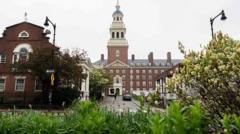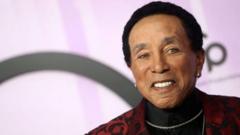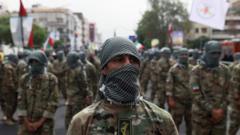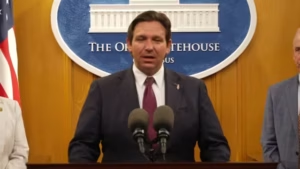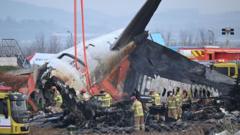Han Tae-soon, after a lifelong search, has reunited with her daughter, Kyung-ha, who was taken to the U.S. under questionable circumstances. Now, she is suing the South Korean government for its role in the illegal adoption system that allowed such cases to occur.
After Decades Apart, Mother Sues Korean Government Over Illegal Adoption of Daughter

After Decades Apart, Mother Sues Korean Government Over Illegal Adoption of Daughter
Han Tae-soon reunites with her daughter 44 years after she was allegedly kidnapped, now seeking justice against South Korea's adoption practices.
Han Tae-soon has been on an emotional journey spanning over four decades, marked by searching for her daughter, Kyung-ha, who disappeared from their Seoul home in 1975. The last memory Ms. Han has is of Kyung-ha, then a bubbly six-year-old, declining to accompany her to the market. When she returned, her daughter was gone. Years later, Han discovered that Kyung-ha had been taken, raised in the U.S. as Laurie Bender, and under suspicious circumstances, she was allegedly kidnapped and sent to an orphanage.
As news of their reunion broke, highlighting the tragic history of thousands of children sent abroad for adoption, Han launched a lawsuit against the South Korean government, claiming negligence led to her daughter's illegal adoption. Her case joins countless others, revealing a history of fraud and human trafficking intertwined with an overseas adoption program that has drawn heavy criticism.
Since its inception in the 1950s, South Korea has sent between 170,000 and 200,000 children abroad for adoption, most of whom ended up in Western countries. A recent inquiry into this adoption program uncovered disturbing findings, revealing that various government entities failed to oversee adoption practices properly, enabling illegal adoptions for profit.
As Han prepares for her court date next month, her case serves as a pivotal moment, the first by a biological parent seeking compensation for the loss incurred from a system designed to facilitate adoptions without proper oversight. A government spokesperson stated sympathy for families like Han's, acknowledging the emotional distress caused by historical adoption policies.
Reflecting on her relentless search, Han shared, "I spent 44 years ruining my body and mind searching for my daughter…" After finally meeting Kyung-ha in 2019 through a DNA matching service, the tearful reunion at the airport marked a climactic moment, though bittersweet. Communication is a struggle as they navigate their language barriers—Ms. Han learns English to bridge the gap, but both feel the emotional weight of lost time.
The truth surrounding South Korea's adoption history reveals a broader narrative of children taken through questionable methods. Amidst scandals of falsified documents and unauthorized adoptions, advocates are demanding accountability, reflecting on the lasting impact on families historically torn apart by a flawed system.
As legal battles unfold, the hope for reform in South Korea's adoption policies grows, with many advocating for reconciliation and recognition of past wrongs. Meanwhile, the emotional scars of adoptees and their biological families, like Han and Kyung-ha, continue to be a lasting reminder of the need for responsible governance in adoption practices.


